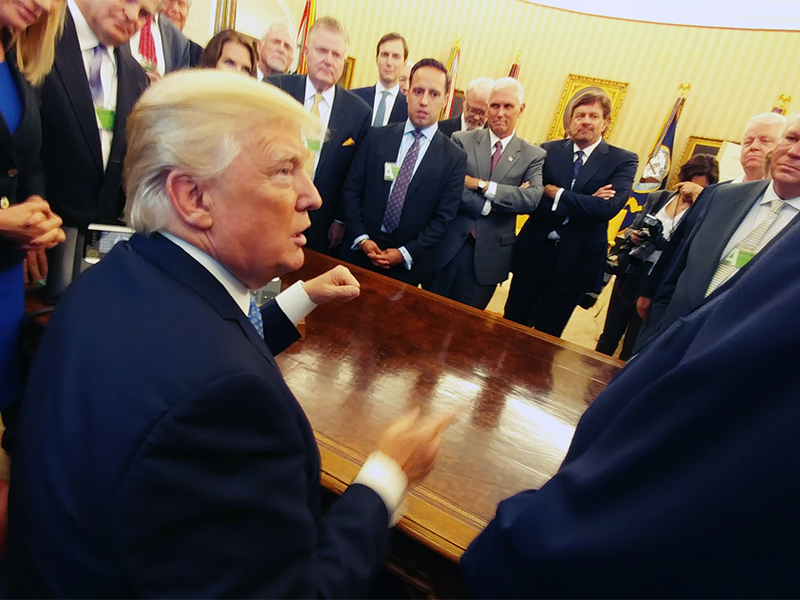As the 2020 election comes into view, a gap has opened up between President Trump’s approval ratings and Americans’ voting intentions: A significant number of voters who approve of the job Trump is doing as president say they wouldn’t vote to re-elect him.
According to the latest Morning Consult/Politico tracking poll, 43 percent of registered voters “strongly” or “somewhat” approve of his job performance but only 37 percent say they would “definitely” or “probably” vote for him. Overall, the approval point spread is 11 (43 percent versus 54 percent who strongly disapprove)—modestly above the current polling average of 9.2 percent—while the re-election point spread is 18 (37 percent versus 55 percent who strongly disapprove).
Let’s call the seven-point differential between the spreads the Trump Aversion Gap (TAG). It is reflection of the softness of Trump’s support, not only in the voting public as a whole but also among his evangelical base.
Just 23 percent of all voters strongly approve of his job performance, as opposed to 42 percent who strongly disapprove. Twenty-seven percent say they would definitely vote for him, as opposed to 47 percent who say they definitely would not.
Among evangelicals (undifferentiated by race in this poll), Trump’s job approval is fairly high: 58 percent versus 39 percent. But only 37 percent strongly approve, as opposed to 27 percent who strongly disapprove. And just over half of evangelicals say they would definitely (42 percent) or probably (10 percent) vote to re-elect Trump, while four in 10 say they would definitely (33 percent) or probably (7 percent) vote for someone else.
Among evangelicals, the TAG is 11 percentage points, four points higher than in the general voting population and more than two times higher than among all self-identified Christians.
What accounts for this? My guess is that it mostly has to do with Trump’s readiness to advance the conservative social agenda on abortion, religious liberty, transgender rights, education, etc. That earns him robust job approval among evangelicals even as many of them find him presidentially objectionable.
Ergo the little contretemps that took place after Trump decided to interrupt his golf game and drop in on McLean Bible Church in suburban Washington last Sunday, the day set by Franklin Graham for evangelicals to pray for him. Surprised, Pastor David Platt let the president appear at the front of the church and delivered the kind of generic prayer for government leaders that commonly issue from Southern Baptist pulpits. Trump’s very presence upset some of his congregants.
Platt later issued an explanation for what he’d done, writing, “I wanted to share all of this with you in part because I know that some within our church, for a variety of valid reasons, are hurt that I made this decision.” Whereupon, Jerry Falwell, Jr., evidently disturbed by Platt’s apologia, tweeted that pastors like him should “grow a pair.”
Subsequently, the tweet was deleted in the face of hostile reaction from his Twitter followers. Then conservative pundit Todd Starnes accused the objecting congregants of Trump Derangement Syndrome. And so on.
Of course, the election is a long way off, and it may turn out that when they get into the voting booth, the Trump-averse evangelicals will hold their nose and vote for him anyway. But if I were running the president’s campaign, I wouldn’t be depending on the kind of support my candidate got from them and their co-religionists back in 2016.






